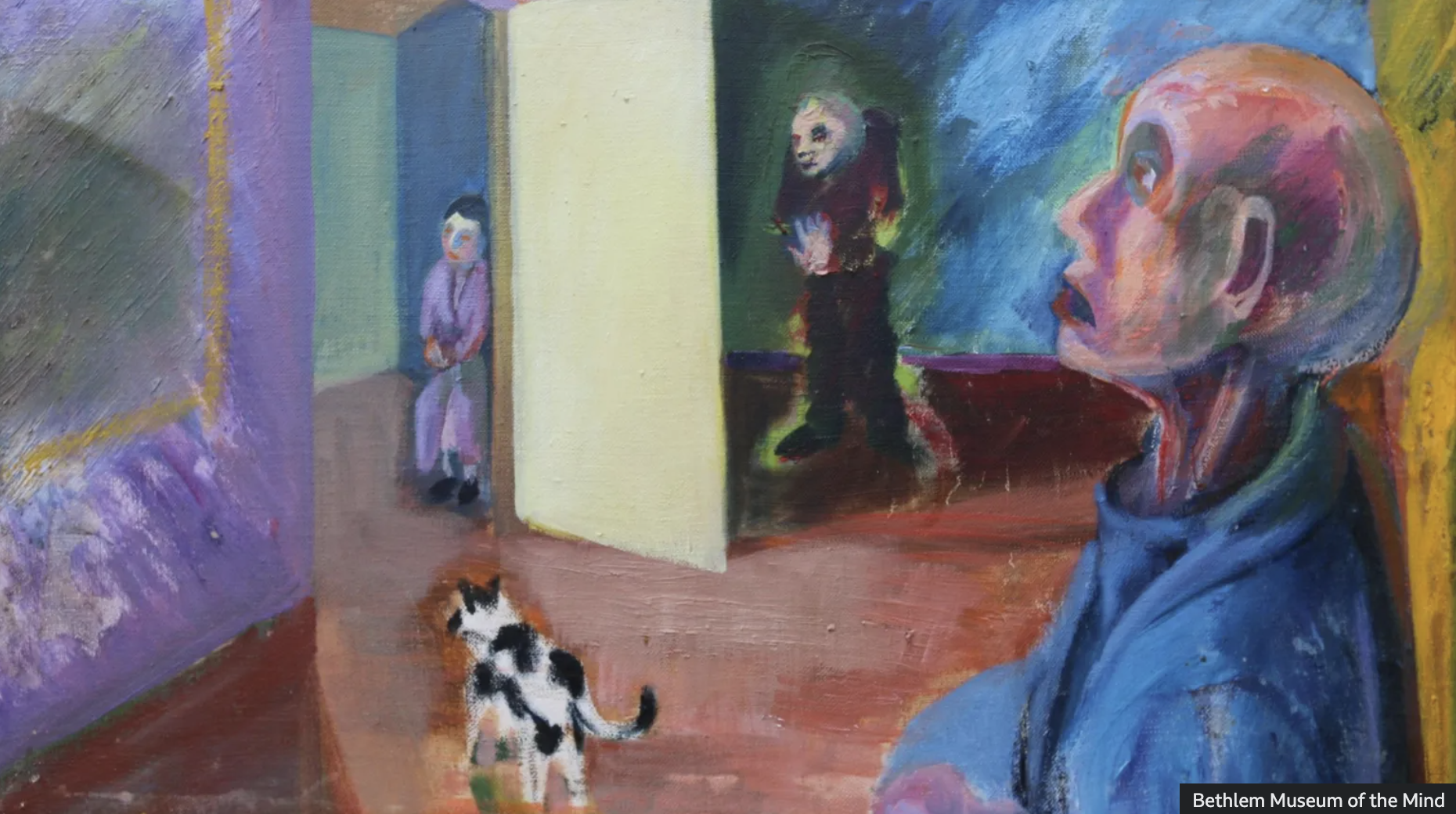Art From An Art Therapist, Paper Mâché, and Living Well
Happy Monday! Welcome back to A-R-T, your weekly dose of three topics to orbit your brain in an artful way throughout the week. We’ve got an article, a recycled project, and a thought to think about for you ponder - hope you enjoy!
Let’s get to it!
Our article this week is a brief look into some of the work by Charles Lutyens, an artist and art therapist who’s artwork gives us a look into psychiatric hospitals during a time when they were much more stigmatized and feared than they are today. His artwork not only encapsulates his view of some of the patients he worked with, but also the daily life of the institutions where he worked.
This weeks recycled project is all about paper mâché. As you embark on a paper mâché project, you can use this medium to capture your own personal stories and experiences, turning everyday materials into expressive and meaningful creations. You might not consider yourself an artist, or have any interest in being an art therapist, but there is always space for you to tell your own stories through the art you create.
Paper mâché translates from french to “chewed up paper”, and it is a simple and affordable art medium you can create with materials you probably have lying around the house.
You will need:
Paper or Newspaper (magazines, paper bags, and other recycled paper types can also work depending on your project)
White Glue or Flour
Water
Salt (optional)
Cardboard (project dependent)
Tape (project dependent)
Paint
The basic method of paper mâché is tearing strips of paper or newspaper, dipping them in your glue mixture, and layer them over each other many times, which will then dry and harden into a relatively strong structure. Depending on what you want to make you can use a base such as a balloon or a bowl covered in saran wrap, or even something you’ve constructed out of cardboard and tape that will become part of the internal structure. The project options are endless, and this how to gives you great instructions and many ideas. We’d love to see what you come up with if you try it out!
Living Well
Talking about art, art therapy, and psychiatric hospitals, has me thinking a lot about mental health about the concept of “living well” and what that can look like for people on an individual level. As someone who lives with multiple mental illnesses, and has for the large majority of my life, it’s not a new concept to me that I may never be completely “well” in the same ways that people live without mental illness might be. This is also true for many people who live with chronic pain, on going conditions, or autoimmune diseases. Being or feeling well is something that can come and go, and can sometimes be something we don’t have a ton of control over. However, the idea of “living well” can be an empowering concept to add into our lives. I frequently ask myself "what are the little daily actions that will keep you feeling good?” and I put a lot of effort into prioritizing them. It has made a huge difference in my overall wellbeing, even though on paper they’re totally the annoying things that everyone always mentions, and I hate to be this guy, but I promise they really add up, and they really do help. Lately I’ve really been prioritizing moving my body, going for walks with my dog, spending intentional time with friends, cooking and eating nourishing foods, and practicing mindfulness. These are just some of the ways that help me to live well. While they aren’t bulletproof and I still experience the waves or life, they keep me at a much more stable and consistent baseline, as opposed to the cycle of pushing myself too hard and then crashing or burning out.
What are some small ways that you can think of that might help you to live well? What are things you enjoy, or feeling nourishing to you, that you could work on prioritizing, or working into your schedule as a regular occurrence? In what ways can you connect to people you love, or the community around you?
(There are so many people who will always experience chronic illness, or who will live with their disability forever, and this is in no way to meant undermine anyone’s experience in any way. Nor, will any of these small daily actions or rituals necessarily cure major on going health conditions. Also, should go without saying, but clearly none of this is medical advice and of course contact your doctor if you have any concerns or before making large changes to your lifestyle.)
Spring is trying it’s best to bloom, and we hope you are too!
Catch you next week,
– Danni


